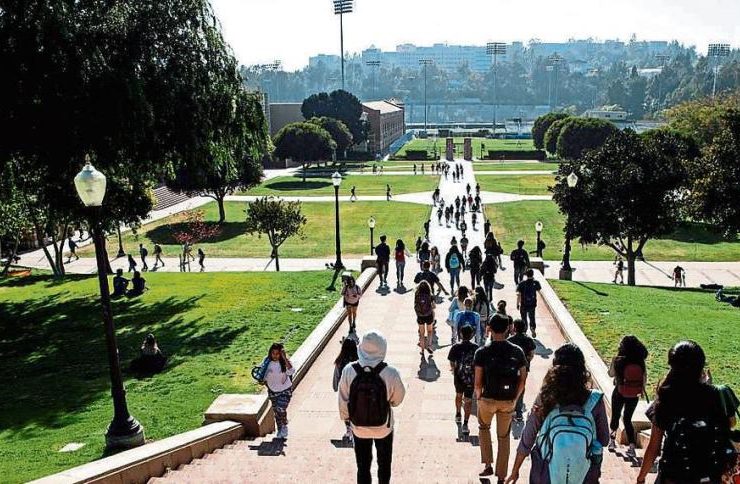International Talent Monitor, challenges to attract impactful talent

As we arrive to the end of the 6th edition of the International Talent Monitor, the bi-annually survey aimed to better know and understand the needs and challenges of the internationals that have chosen Barcelona as the city to live and work, we gather insights on how to attract and retain international talent and what needs Barcelona to become a magnet for this talent.
The survey, done together with Banco Sabadell, was quantitatively answered by 1008 people and up to 60 professionals that participated in the 8 qualitative focus groups, and was able to draw some important conclusions that matter in the life of the Barcelonians by choice.
But who are the Barcelonians by Choice that answered the survey? Among the more than 1000 respondents we can find:
– 90 nationalities
– 73% of respondents are married or living with a partner.
– 78% of respondents live in Barcelona City Centre
– By far the biggest sector – 20% work in computer, technology or software sector, followed by 13% in research, and 9% in health care or pharmaceuticals.
In the light of level of education, it is interesting to note that 51% of respondents earned 50,000 or less per year in euros before taxes.
Check the respondents’ profile here.
A disconnected cosmopolitan city
Barcelona is still seen as a global cosmopolitan city that has diverse cultural influences and opportunities; the main feature of Barcelona is its quality of life that continues to attract international talent from all around the world. Nonetheless, this attribute of Barcelona does not add up enough against the rental and housing prices, most of the respondents stress the fact that the housing prices have risen and that the salaries are by no means enough to cover that type of expenses. Many respondents would have moved outside of the city if it weren’t for the lack of public transport between the Metropolitan Area and Barcelona, on all focus groups the participants emphasized about the need of a better transport connection between the city and the outskirts. But inversely, the public transport within the city is one of the ‘Top 10 Indicators’ of the International Talent Monitor, as we have seen in the results that up to 57% of the respondents use public transport, the satisfaction with city transport has increased and is perceived as an important asset.
One of the main problems that internationals still encounter when arriving in Barcelona are the administrative procedures, the respondents laid emphasis on the need to digitalize these processes and boost the English language in these institutions. Even though following conversations with Barcelona Global, the city council launched the online portal: Barcelona International Welcome, a platform that helps internationals with their arrival procedures and additional relevant information, the real underlying problem is still the long processes that newcomers must go through.
The good system vs the bad result
However, the Barcelonians by choice are very pleased with the healthcare systems, the public and the private, since almost 40% of the respondents benefit from both. Although more internationals use the private healthcare system (35.4%) than the public healthcare system (25.4%), both systems have a high level of satisfaction.
There is a general concern about the air quality of Barcelona, many respondents have expressed their worry in both the survey and the focus groups. This topic has been raised in this edition of the International Talent Monitor due to the alarming climate change problem, the air quality is identified as a ‘Bottom 10 Indicator’. Barcelona is a city that produces a lot of air pollution with its constant traffic, this has not been overlooked by the international community which displayed their discontent with the air quality and the noise pollution.
What should Barcelona focus on?
While a big part of the respondents stated that they have no plans for leaving Barcelona, a sizeable percentage said they will do so within a few years or in the distance future. Affordability, employment options and career prospects are important considerations when deciding whether to stay or leave. Then again, respondents believe that Barcelona has a very potential future in different sectors, the city and its inhabitants should explore these, and Barcelona will become an attractive city for internationals looking for work and a good quality of live.
On the other hand, the Barcelonians by choice highlighted the promising future of Barcelona if the city became a more sustainable one, the Catalan capital ought to develop sustainable mobility solutions, promote renewable energy, and implement eco-friendly policies that produces economic growth while preserving the environment.
Many respondents feel at home in Barcelona but that does not imply that it was easy for them to establish a relation with the locals, the sense of belonging is not easy to build for the internationals, even though they enjoy the culture, the food, the weather of the city, it is not easy for them to create a bond with the Barcelonians by birth, but they continue to see Barcelona as a city that is open and accepting of the international talent, which this makes the city a potentially attractive destination for foreign professionals.
In conclusion, Barcelona attracts top talent from all around the world due to its cosmopolitan appeal and compelling lifestyle. However, in order to retain its level of global competitiveness in the future, it will be essential to solve issue with the cost of living, low salaries, complicated administrative procedures, and become a more sustainable city. Barcelona can maintain its potential to draw in and keep top international talent while promoting an inclusive atmosphere, and future opportunities, all of which will help the city succeed in the long run.
Check out all the results here.
Si quieres conocer las últimas noticias sobre Barcelona, su talento y sus proyectos, suscríbete a nuestra newsletter.







